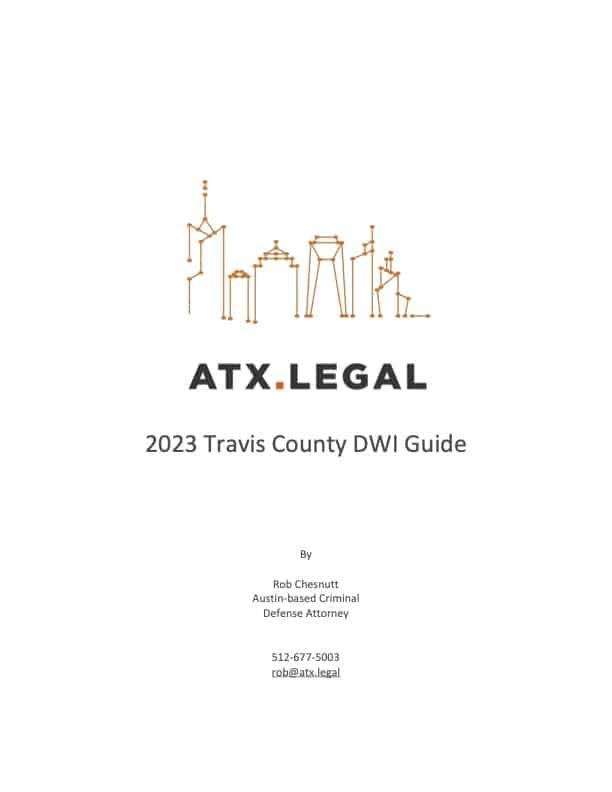2023 Travis County DWI Guide Part 7 - Trial
Trial in DWI cases is unlikely. There are many reasons for this, but essentially it comes down to game theory. In negotiations, avoiding trial is often in the interest of all parties, so we can work together to make that happen. Prosecutors and judges want to clear their docket. Defense attorneys and their clients want to avoid the risk of a conviction. All parties want to avoid a lengthy trial that clogs their schedules. The result is that offers get made which are palatable to both sides. However, this is not always the case, and if the two sides reach an impasse, the case is set for trial.
Parties can agree on a bench trial where the judge decides the facts. This can sometimes get the trial set sooner since it does not have the complications of jury selection. However, it is usually advantageous for the defendant to opt for a jury trial.
The Jury Call
When a case is initially set on the trial docket, it is placed on a day with a number of other cases (usually 8-10 cases, but can be more or less). The judge calls all the cases and asks if they “announce ready”. This means they are ready to proceed along with all witnesses they plan to call. Unless excused for a legitimate reason, the defendant must be present for every jury call, even if their case is not chosen.
If the State or Defense does not “announce ready”, they must ask for a continuance. The judge does not have to grant the continuance. If the State has asked for 2 or more previous continuances, the judge will often force them to either announce ready or dismiss the case. Typically, the judge will choose to proceed on the oldest case on the jury docket that is ready. If the oldest case is not ready for any reason, or if the parties work out a plea, the judge will go down the line. Although unusual for DWI cases, if the Defendant is in custody, that case might be given precedence as well.
Stages of Trial
Voir Dire is the stage where a jury is chosen. Both the State and Defense can ask questions of the jury and seek to disqualify jurors for bias or other reasons. It is a very important stage in the process, not only for selecting the best jurors from the pool, but also because it is a chance to make a first impression and talk about the important issues of the case.
After opening statements, the prosecution puts on their case. This usually consists of police testimony, dashcam and bodycam videos, and an expert to testify about the BAC test. Sometimes there will be 911 calls or other witness testimony. The defense attorney can poke holes in the caser through cross-examination of any of the State’s witnesses.
Following the State’s case, the Defense can call witnesses. The Defendant can testify or exercise his/her right to remain silent, and not take the stand. If she does take the stand, she is subject to cross-examination by the prosecution. The decision is case-specific, and one that we would discuss pre-trial. Ultimately, the decision to testify or not is left in the hands of the client, not the attorney.
After both sides finish with witness testimony, there are closing arguments, and the jury deliberates. Misdemeanor DWI trials usually last 2-3 days. You will need to be available for all three days.
Why go to Trial?
There are several reasons to go to trial. The first is if the State is unwilling to make an offer that does not involve a conviction, you might have nothing to lose by going to trial. In other words – if you lose at trial, the outcome will be no worse than what the State is offering.
Another reason is if your back is against the wall. Let’s say that the State is only offering probation with a conviction. However, because of your immigration status or because you would lose your job, a conviction will be very detrimental to your way of life. Trial is the only option here. In that case, you shouldn’t go down without a fight.
Another reason could be that the state’s case is weaker than they think. Most of the time, if the prosecution’s case is weak, we can get to a good result (like a dismissal) without the need for trial. However, sometimes when dealing with an overzealous prosecutor, we just can’t get there. In these cases, the best thing to do is to just set for trial. Often placing a case on a trial docket is enough to get the prosecutor to take a hard look at the facts and improve their offer.

